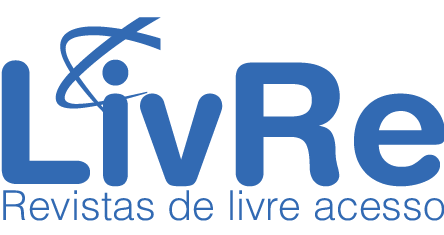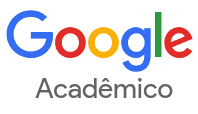O repensar indispensável na formação de professores de Geografia para atender alunos com necessidades especiais
DOI:
https://doi.org/10.46789/edugeo.v15i25.1428Palabras clave:
Inclusão, Educação, LicenciaturaResumen
El artículo destaca la importancia de formar profesores de geografía para satisfacer las necesidades especiales de los estudiantes, enfatizando la integración de la tecnología en la enseñanza y la promoción de prácticas inclusivas. La investigación revela la falta de preparación de los docentes para atender la diversidad de los estudiantes, especialmente aquellos con discapacidades y trastornos, señalando la escasez de proyectos y estrategias inclusivas en sus procesos de formación. La colaboración entre docentes, familiares y profesionales de la salud es esencial para promover la inclusión y el aprendizaje significativo de todos los estudiantes. Es necesario cambiar el paradigma educativo, proponiendo una formación más reflexiva y colaborativa, que proporcione recursos y tecnologías asistivas para ayudar en el proceso de inclusión. La articulación transdisciplinaria y la identificación de estrategias pedagógicas inclusivas son esenciales para garantizar una educación geográfica más equitativa y accesible. Por lo tanto, es urgente que las instituciones educativas prioricen la inclusión de prácticas pedagógicas orientadas a satisfacer las necesidades de los estudiantes con diversidad, apuntando a una educación geográfica más inclusiva y efectiva para todos los estudiantes.
Descargas
Citas
AMERICAN ACADEMY OF OPHTHALMOLOGY. Low vision rehabilitation. 2020. Disponível em: https://www.aao.org/eye-health/treatments/low-vision-rehabilitation. Acesso em: 31 mar. 2025.
AMERICAN ASSOCIATION ON INTELLECTUAL AND DEVELOPMENTAL DISABILITIES. Intellectual disability: definition, classification, and systems of supports. Washington, DC: AAIDD, 2019.
AMERICAN PSYCHIATRIC ASSOCIATION. Diagnostic and statistical manual of mental disorders. 5. ed. Arlington, VA: American Psychiatric Publishing, 2013. DOI: https://doi.org/10.1176/appi.books.9780890425596
AMERICAN SPEECH-LANGUAGE-HEARING ASSOCIATION. Central auditory processing: current status of research and implications for clinical practice. American Journal of Audiology, v. 14, n. 2, p. 1-13, 2005.
ARTHUR-KELLY, M. et al. Reflections on enhancing pre-service teacher education programmes to support inclusion: perspectives from New Zealand and Australia. European Journal of Special Needs Education, v. 28, n. 2, p. 217-233, 2013. DOI: https://doi.org/10.1080/08856257.2013.778113
ARTVINLI, E. What is innovative geography teaching? A perspective from geography teachers. Journal of Education and Training Studies, v. 5, n. 6, p. 9-23, 2017. DOI: https://doi.org/10.11114/jets.v5i6.2383
AVRAMIDIS, E.; KALYVA, E. The influence of teaching experience and professional development on Greek teachers' attitudes towards inclusion. European Journal of Special Needs Education, v. 22, n. 4, p. 367-389, 2007. DOI: https://doi.org/10.1080/08856250701649989
BACICH, L.; NETO, A. T.; DE MELLO TREVISANI, F. Ensino híbrido: personalização e tecnologia na educação. Penso Editora, 2015.
BAHARIN, N. et al. Integrating STEM education approach in enhancing higher order thinking skills. International Journal of Academic Research in Business and Social Sciences, v. 8, n. 7, p. 810-821, 2018. DOI: https://doi.org/10.6007/IJARBSS/v8-i7/4421
BARKLEY, R. A. Behavioral inhibition, sustained attention, and executive functions: constructing a unifying theory of ADHD. Psychological Bulletin, v. 121, n. 1, p. 65-94, 1997. DOI: https://doi.org/10.1037//0033-2909.121.1.65
BOURNE, R. R. A. et al. Magnitude, temporal trends, and projections of the global prevalence of blindness and distance and near vision impairment: a systematic review and meta-analysis. The Lancet Global Health, v. 5, n. 9, p. e888-e897, 2017.
BROWN, J.; SMITH, L. Enhancing teacher preparedness for inclusive education through collaborative training models. International Journal of Inclusive Education, v. 27, n. 2, p. 180-196, 2023.
CENTERS FOR DISEASE CONTROL AND PREVENTION. Attention-deficit/hyperactivity disorder (ADHD). 2020. Disponível em: https://www.cdc.gov/ncbddd/adhd/index.html. Acesso em: 31 mar. 2025.
CENTERS FOR DISEASE CONTROL AND PREVENTION. Disability and health: physical disabilities. 2020. Disponível em: https://www.cdc.gov/ncbddd/disabilityandhealth/physical.html. Acesso em: 31 mar. 2025.
CHEN, Z.; CHEN, R. Exploring the key influencing factors on teachers' reflective practice skill for sustainable learning: a mixed methods study. International Journal of Environmental Research and Public Health, v. 19, n. 18, p. 11630, 2022. DOI: 10.3390/ijerph191811630. DOI: https://doi.org/10.3390/ijerph191811630
CHENG, Y. Y. et al. Prevalence and causes of hearing impairment in a population-based elderly cohort in rural China. Ear and Hearing, v. 38, n. 1, p. 30-36, 2017.
CHERMAK, G. D.; MUSIEK, F. E. Central auditory processing disorders: new perspectives. Ear and Hearing, v. 18, n. 6, p. 342-362, 1997.
CONGDON, N. G.; FRIEDMAN, D. S.; LIETMAN, T. Important causes of visual impairment in the world today. JAMA, v. 290, n. 15, p. 2057-2060, 2003. DOI: https://doi.org/10.1001/jama.290.15.2057
CORTESE, S. The neurobiology and genetics of attention-deficit/hyperactivity disorder (ADHD): what every clinician should know. European Journal of Paediatric Neurology, v. 16, n. 5, p. 422-433, 2012. DOI: https://doi.org/10.1016/j.ejpn.2012.01.009
DA SILVA MATIAS, V. R. Implicações das novas tecnologias na educação geográfica: para quem? E para quê? Caminhos de Geografia, v. 22, n. 16, p. 242-253, 2005. DOI: https://doi.org/10.14393/RCG61615463
DE SOUZA, V. C. A pesquisa mediando a formação de professores no processo de aprendizagem em geografia. 2017. DOI: https://doi.org/10.25074/07195532.12.419
DINIZ, M. Inclusão de pessoas com deficiência e/ou necessidades específicas: avanços e desafios. Autêntica, 2017.
DOS SANTOS, L. F.; TEZANI, T. C. R. Aprendizagem colaborativa no ensino de história: a sala de aula invertida como metodologia ativa. Revista Novas Tecnologias na Educação, v. 16, n. 2, p. 101-111, 2018. DOI: https://doi.org/10.22456/1679-1916.89302
EDYBURN, D. L. Assistive technology and students with mild disabilities. Focus on Exceptional Children, v. 32, n. 9, 2000. DOI: https://doi.org/10.17161/fec.v32i9.6776
FARAONE, S. V. et al. Attention-deficit/hyperactivity disorder. Nature Reviews Disease Primers, v. 1, artigo 15020, 2015. DOI: https://doi.org/10.1038/nrdp.2015.20
FERGUSON, D. L. International trends in inclusive education: the continuing challenge to teach each one and everyone. European Journal of Special Needs Education, v. 23, n. 2, p. 109-120, 2008. DOI: https://doi.org/10.1080/08856250801946236
FORLIN, C.; CHAMBERS, D. Teacher preparation for inclusive education: increasing knowledge but raising concerns. Asia-Pacific Journal of Teacher Education, v. 39, n. 1, p. 17-32, 2011. DOI: https://doi.org/10.1080/1359866X.2010.540850
GARCÍA-CAMPOS, M. R.; SÁNCHEZ-GARCÍA, M. C.; NIETO-MARTÍN, M. D. Barriers to educational inclusion in initial teacher training. Societies, v. 13, n. 2, p. 31, 2023. DOI: 10.3390/soc13020031. DOI: https://doi.org/10.3390/soc13020031
GATES, G. A.; MILLS, J. H. Presbycusis. Hearing Research, v. 200, n. 1-2, p. 1-9, 2005.
GOMES, M. M. O orientador educacional, o mediador escolar e a inclusão. Wak, 2024.
GREENE, R. W.; DOYLE, A. E. Toward a transactional conceptualization of oppositional defiant disorder: Implications for treatment and assessment. Clinical Child and Family Psychology Review, v. 2, n. 2, p. 129-148, 1999. DOI: https://doi.org/10.1023/A:1021850921476
GREGG, M. et al. Geography and multiple abilities program: Innovations in teacher education-reconnecting teaching to students' needs. Journal of Geography, v. 94, n. 5, p. 505-512, 1995. DOI: https://doi.org/10.1080/00221349508979355
HAYAT, A. A. et al. Inclusive Education in Primary and Secondary School: Perception of Teacher Training. International Journal of Environmental Research and Public Health, v. 19, n. 23, p. 15451, 2022. DOI: 10.3390/ijerph192315451. DOI: https://doi.org/10.3390/ijerph192315451
HYMAN, S. L.; LEVY, S. E.; MYERS, S. M. Identification, evaluation, and management of children with autism spectrum disorder. Pediatrics, v. 145, n. 1, p. e20193447, 2020. DOI: https://doi.org/10.1542/9781610024716-part01-ch002
KAZDIN, A. E. Psychosocial treatments for conduct disorder in children and adolescents. Journal of Clinical Child Psychology, v. 31, n. 2, p. 220-246, 2002.
KENSKI, V. M. Educação e tecnologias: o novo ritmo da informação. Campinas: Papirus, 2003.
KOZLESKI, E. B.; WAITOLLER, F. R. Teacher learning for inclusive education: Understanding teaching as a cultural and political practice. International Journal of Inclusive Education, v. 14, n. 7, p. 655-666, 2010. DOI: https://doi.org/10.1080/13603111003778379
KURNIAWATI, F.; LAUTENBACH, G.; HEYDER, K. Designing Effective Pre-service Teacher Training in Inclusive Education. Journal of Education and Human Development, v. 9, n. 2, p. 15-25, 2020.
KURTH, J. A.; LYON, K. J.; SHOGREN, K. A. Considering least restrictive environment placement for students with extensive support needs: What are the options? Research and Practice for Persons with Severe Disabilities, v. 40, n. 1, p. 51-63, 2015. DOI: 10.1177/1540796915585109. DOI: https://doi.org/10.1177/1540796915594160
LAMBERT, D.; BALDERSTONE, D. Learning to teach geography in the secondary school: a companion to school experience. Abingdon: Routledge, 2012. DOI: https://doi.org/10.4324/9780203871683
LEVSTIK, L. S.; BARTON, K. C. Doing history: Investigating with children in elementary and middle schools. Abingdon: Routledge, 2022. DOI: https://doi.org/10.4324/9781003179658
LIN, F. R.; NIPARKO, J. K.; FERRUCCI, L. Hearing loss prevalence in the United States. JAMA, v. 305, n. 20, p. 2167-2168, 2011. DOI: https://doi.org/10.1001/archinternmed.2011.506
LOEBER, R. et al. Oppositional defiant and conduct disorder: A review of the past 10 years, part I. Journal of the American Academy of Child & Adolescent Psychiatry, v. 39, n. 12, p. 1468-1484, 2000. DOI: https://doi.org/10.1097/00004583-200012000-00007
LORD, C. et al. Autism spectrum disorder. The Lancet, v. 392, n. 10146, p. 508-520, 2018. DOI: https://doi.org/10.1016/S0140-6736(18)31129-2
MAULIK, P. K. et al. Prevalence of intellectual disability: A meta-analysis of population-based studies. Research in Developmental Disabilities, v. 32, n. 2, p. 419-436, 2011. DOI: https://doi.org/10.1016/j.ridd.2010.12.018
MIYAUCHI, H. A systematic review on inclusive education of students with visual impairment. Education Sciences, v. 10, n. 11, p. 346, 2020. DOI: 10.3390/educsci10110346. DOI: https://doi.org/10.3390/educsci10110346
MOLINA ROLDÁN, S. et al. How inclusive interactive learning environments benefit students without special needs. Frontiers in Psychology, v. 12, 2021. DOI: 10.3389/fpsyg.2021.661427. DOI: https://doi.org/10.3389/fpsyg.2021.661427
MONSEN, J. J.; EWING, D. L.; KWOKA, M. Teachers’ attitudes towards inclusion, perceived adequacy of support and classroom learning environment. Learning Environments Research, v. 17, p. 113-126, 2014. DOI: 10.1007/s10984-013-9144-8. DOI: https://doi.org/10.1007/s10984-013-9144-8
MOORE, D. R. Auditory processing disorders: Acquisition and treatment. Journal of Communication Disorders, v. 40, n. 4, p. 295-304, 2007. DOI: https://doi.org/10.1016/j.jcomdis.2007.03.005
MOORE, D. R.; HUNTER, L. L. Auditory processing disorder (APD) in children: A marker of neurodevelopmental syndrome. Hearing, Balance and Communication, v. 11, n. 3, p. 160-167, 2013. DOI: https://doi.org/10.3109/21695717.2013.821756
MURPHY, E.; YOUNG, T. Teacher competencies for inclusive education: Will emotional intelligence make a difference? European Journal of Special Needs Education, v. 19, n. 2, p. 171-190, 2011.
NATIONAL INSTITUTE OF CHILD HEALTH AND HUMAN DEVELOPMENT. Intellectual and developmental disabilities. 2020. Disponível em: https://www.nichd.nih.gov/health/topics/idds. Acesso em: 31 mar. 2025.
NATIONAL INSTITUTE OF MENTAL HEALTH. Attention deficit hyperactivity disorder. 2020. Disponível em: https://www.nimh.nih.gov/health/topics/attention-deficit-hyperactivity-disorder-adhd/index.shtml. Acesso em: 31 mar. 2025.
WORLD HEALTH ORGANIZATION. World report on disability. Geneva: WHO, 2011.
WORLD HEALTH ORGANIZATION. Vision impairment and blindness. 2021. Disponível em: https://www.who.int/news-room/fact-sheets/detail/blindness-and-visual-impairment. Acesso em: 31 mar. 2025.
WORLD HEALTH ORGANIZATION. Global costs of unaddressed hearing loss and cost-effectiveness of interventions: a WHO report. International Journal of Audiology, v. 56, n. 2, p. 85-92, 2017.
YLI-PANULA, E.; JERONEN, E.; LEMMETTY, P. Teaching and learning methods in geography promoting sustainability. Education Sciences, v. 10, n. 1, p. 5, 2019. Disponível em: https://www.mdpi.com/2227-7102/10/1/5. Acesso em: [data de acesso]. DOI: https://doi.org/10.3390/educsci10010005
ZHANG, H.; ZHOU, Y. Effective Teaching Strategies for Inclusive Special Education. Journal of Special Education, v. 22, n. 4, p. 345-357, 2020.
Descargas
Publicado
Cómo citar
Número
Sección
Licencia
Proposta de Aviso de Direito Autoral Creative Commons
1. Declaro que o presente artigo é original, não tendo sido submetido à publicação em qualquer outro periódico nacional ou internacional, quer seja em parte ou em sua totalidade. Declaro, ainda, que uma vez publicado na Revista Brasileira de Educação em Geografia, o mesmo jamais será submetido por mim ou por qualquer um dos demais co-autores a qualquer outro periódico. E declaro estar ciente de que a não observância deste compromisso submeterá o infrator a sanções e penas previstas na Lei de Proteção de Direitos Autorias (Nº9609, de 19/02/98)
2. A Revista Brasileira de Educação em Geografia tambem segue a "Proposta de Política para Periódicos de Acesso Livre".
Autores que publicam nesta revista concordam com os seguintes termos:
- Autores mantém os direitos autorais e concedem à revista o direito de primeira publicação, com o trabalho simultaneamente licenciado sob a Licença Creative Commons Attribution que permite o compartilhamento do trabalho com reconhecimento da autoria e publicação inicial nesta revista.
- Autores têm autorização para assumir contratos adicionais separadamente, para distribuição não-exclusiva da versão do trabalho publicada nesta revista (ex.: publicar em repositório institucional ou como capítulo de livro), com reconhecimento de autoria e publicação inicial nesta revista.
- Autores têm permissão e são estimulados a publicar e distribuir seu trabalho online (ex.: em repositórios institucionais ou na sua página pessoal) a qualquer ponto antes ou durante o processo editorial, já que isso pode gerar alterações produtivas, bem como aumentar o impacto e a citação do trabalho publicado (Veja O Efeito do Acesso Livre).







